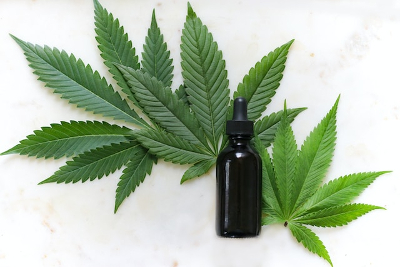CBD, short for cannabidiol, has surged in popularity in recent years as a natural remedy for various health concerns. Derived from the cannabis plant, CBD is renowned for its potential therapeutic effects, but as with any supplement, it’s important to approach its use with knowledge and caution. In this article, we’ll delve into the top tips for understanding the benefits and risks of taking CBD, helping you make informed decisions about its usage.
Exploring the Potential Benefits of CBD
CBD has garnered attention for its potential to alleviate a range of conditions, from anxiety and pain to insomnia and inflammation. It interacts with the body’s endocannabinoid system, which plays a crucial role in maintaining balance within various bodily functions. Research suggests that CBD’s interaction with this system may lead to therapeutic effects that could benefit individuals in various ways, which you can discover at this local store.
Anxiety and Stress Relief: Many users report feeling a sense of calm and relaxation after taking CBD. Several studies have indicated that CBD may help reduce symptoms of anxiety and stress by influencing the brain’s receptors for serotonin, a neurotransmitter associated with mood regulation. While more research is needed, the preliminary results are promising.
Pain Management: Another area where CBD shows promise is in pain management. Some people turn to CBDa full spectrum oil to alleviate chronic pain conditions, such as arthritis or back pain. The anti-inflammatory properties of CBD are believed to contribute to its potential analgesic effects. However, dosing and individual responses can vary, so consulting a healthcare professional before relying solely on CBD for pain management is advisable.
Navigating the Potential Risks of CBD
While CBD is generally considered safe and well-tolerated by many individuals, it’s essential to recognize that it’s not entirely without potential risks. Being aware of these risks, and seeking advice from CBD hemp flower experts, will help you make a more informed decision regarding its use. These experts can provide valuable insights into sourcing high-quality products and navigating the evolving landscape of CBD regulation.
Drug Interactions: CBD can interact with certain medications, potentially affecting how they are metabolized by the body. It’s particularly important to be cautious if you’re taking medications that come with a “grapefruit warning,” as CBD and grapefruit inhibit similar enzymes in the liver. Always consult your healthcare provider before introducing CBD into your regimen, especially if you’re on prescription medications.
Quality and Regulation: The CBD market is still relatively young and lacks consistent regulation. This means that the quality and potency of products can vary significantly. To ensure you’re getting a safe and effective product, opt for CBD sourced from reputable manufacturers who provide third-party lab testing results. This will give you insight into the cannabinoid content and potential contaminants in the product.
Finding the Right Approach for You
Individual responses to CBD can differ greatly, making it crucial to find the right approach that suits your needs and preferences. Here are a few tips to guide you:
Start Low and Go Slow: If you’re new to CBD, start with a low dose and gradually increase it over time. This allows you to assess how your body responds and find the optimal dosage for your desired effects.
Consult a Professional: Before incorporating CBD into your routine, consult with a healthcare professional, especially if you have underlying health conditions or are taking medications. They can provide personalized guidance based on your medical history.
Consider Your Goals: Clearly define what you hope to achieve with CBD use. Are you looking for pain relief, better sleep, or stress reduction? Understanding your goals will help you choose the right product and dosage.
Understanding the Legality of CBD
The legal status of CBD varies from region to region, adding another layer of complexity to its usage. It’s crucial to understand the local laws and regulations regarding CBD products in your area.
In some places, CBD derived from hemp with low levels of THC (tetrahydrocannabinol) is legal, while in others, all forms of cannabis are still prohibited. Make sure to research the laws in your jurisdiction before purchasing or using CBD products to avoid any legal complications.
Considering Full Spectrum vs. Broad Spectrum vs. Isolate
When shopping for CBD products, you’ll come across terms like full spectrum, broad spectrum, and isolate. These refer to the different types of CBD extracts used in products.
Full Spectrum: This type of CBD contains a wide range of cannabinoids, including a trace amount of THC (0.3% or less). The combination of cannabinoids is believed to produce an “entourage effect,” enhancing the potential therapeutic benefits of the plant compounds working together.
Broad Spectrum: Broad spectrum CBD also contains multiple cannabinoids, but the THC has been removed entirely. This can be a suitable option for those who want to avoid THC while still benefiting from other cannabinoids.
Isolate: CBD isolate is the purest form of CBD, containing no other cannabinoids or compounds. It’s ideal for individuals who want to experience CBD without any other plant compounds.
CBD holds promise as a natural remedy for various health concerns, but it’s essential to approach its use with a balanced understanding of its benefits and risks. By exploring its potential benefits, recognizing potential risks, finding the right approach for your individual needs, understanding its legality, and considering different CBD extracts, you can make informed decisions that contribute to your overall well-being. Remember, knowledge is your best ally when considering any supplement, and consulting healthcare professionals can provide you with the guidance you need to incorporate CBD safely and effectively into your lifestyle.



{ 1 comment… read it below or add one }
Great Post! The information and regulations surrounding CBD can evolve, so it’s essential to stay updated on the latest research and guidelines. Always prioritize your health and well-being when considering any supplements or lifestyle changes.